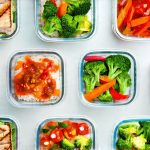The daily grind often leaves us feeling overwhelmed, stretched thin, and constantly reacting instead of proactively caring for ourselves. This constant state of “on” doesn’t just impact our mental wellbeing; it can significantly affect our physical health too, often manifesting as subtle but persistent stress on the body. One frequently overlooked area where this manifests is through urinary system function – the kidneys, bladder, and surrounding structures are highly sensitive to stress hormones and lifestyle choices. While not always immediately apparent, chronic stress can contribute to issues like increased frequency, urgency, discomfort, or even more serious conditions over time. Understanding how daily habits influence this system, and proactively managing those habits, is key to reducing unnecessary strain.
This article explores the concept of meal prep cycles as a powerful tool for decreasing daily urinary stress. It’s not about restrictive dieting or complex recipes; it’s about strategically planning and preparing food to alleviate mental load, optimize hydration, support kidney function with nutrient-rich choices, and ultimately reduce the physiological impact of a hectic lifestyle on your bladder and urinary tract. By taking control of what you eat and how you nourish yourself, you can create a foundation for greater wellbeing and minimize unnecessary stress on this vital system. This approach isn’t about eliminating all stressors – it’s about removing one significant source of daily friction, freeing up mental energy and promoting physiological balance.
The Interconnection Between Diet, Stress & Urinary Health
The relationship between what we eat, our stress levels, and urinary health is surprisingly intricate. When stressed, the body releases cortisol, a hormone essential for survival but detrimental in chronic excess. Cortisol impacts numerous bodily functions, including fluid regulation. Elevated cortisol can lead to increased blood pressure, which subsequently puts strain on the kidneys as they work to filter waste. Simultaneously, stress often prompts us to make less-than-ideal food choices – reaching for quick, convenient options that are high in sodium, sugar, and processed ingredients. These foods exacerbate kidney workload and contribute to inflammation, potentially irritating the bladder and urinary tract.
Furthermore, dehydration is a common consequence of both stress and busy schedules. When dehydrated, urine becomes more concentrated, increasing irritation to the bladder lining and potentially leading to discomfort or urgency. A diet lacking in essential nutrients, particularly magnesium, potassium, and B vitamins, can also hinder optimal kidney function. Essentially, a vicious cycle develops where stress leads to poor dietary choices, dehydration, and increased urinary strain – all compounding each other. Breaking this cycle requires a proactive approach that addresses both nutritional intake and the mental load associated with daily food preparation. To further support your kidneys, consider incorporating daily foods known to promote urinary health into your meal prep.
Meal prepping isn’t just about convenience; it’s about consciously choosing foods that support kidney health, ensuring adequate hydration, and reducing the physiological impact of stress on your urinary system. By taking charge of our meals, we take charge of our wellbeing.
Building Your Meal Prep Cycle: A Practical Approach
A successful meal prep cycle isn’t about spending an entire weekend in the kitchen. It’s about strategic planning and focused effort to create a sustainable system that fits your lifestyle. Start small – don’t try to overhaul your entire diet overnight. Begin by identifying 2-3 meals per week you can consistently prepare ahead of time. This could be breakfasts, lunches, or even just dinners. Focus on recipes that utilize similar ingredients to minimize waste and streamline the process.
Consider incorporating foods known to support kidney function, such as blueberries (rich in antioxidants), cauliflower (low in potassium but provides fiber), and lean protein sources like fish or chicken. Hydration is also key – plan for readily available water bottles or infused water options. When choosing recipes, prioritize those with lower sodium content and avoid highly processed ingredients. The goal is to create a system that makes healthy eating effortless, not another source of stress. Finally, remember flexibility is crucial. Life happens! Don’t beat yourself up if you deviate from your plan occasionally – simply get back on track at the next meal prep session. A helpful step in maintaining consistency could involve using a daily urology meal log to monitor your intake.
Optimizing Hydration Through Meal Prep
Staying adequately hydrated is paramount for urinary health, and meal prepping can facilitate this effortlessly. Instead of relying on remembering to drink water throughout the day, integrate hydration into your pre-prepared meals and snacks.
- Include hydrating fruits and vegetables in your meal prep: Cucumber slices with hummus, watermelon chunks, or berries are all excellent choices.
- Prepare infused water bottles in advance: Add sliced lemon, cucumber, mint, or berries to a large pitcher of water for a refreshing and naturally flavored beverage. This encourages increased fluid intake.
- Pack reusable water bottles alongside your prepped meals: Having readily available hydration makes it easier to stay on track throughout the day, reducing the risk of concentrated urine and bladder irritation.
Beyond simply drinking enough water, consider when you’re hydrating. Sipping water consistently throughout the day is more beneficial than chugging large amounts at once. Avoid excessive fluid intake right before bedtime to minimize nighttime bathroom trips.
Nutrient-Rich Choices for Kidney Support
The kidneys are constantly working to filter waste and maintain electrolyte balance. Providing them with the nutrients they need is essential for optimal function. Meal prepping allows you to prioritize these nutrient-rich foods:
- Magnesium-rich options: Spinach, dark chocolate (in moderation!), avocado, and pumpkin seeds can all be incorporated into your prepped meals or snacks. Magnesium helps regulate blood pressure and supports kidney health.
- Potassium-balanced choices: While potassium is essential, excessive intake can strain kidneys. Focus on moderate portions of potassium-rich foods like sweet potatoes and bananas, while also including low-potassium options such as cauliflower and green beans.
- Antioxidant powerhouses: Berries, colorful peppers, and leafy greens provide antioxidants that protect kidney cells from damage caused by free radicals.
Prioritizing whole, unprocessed foods is always the best approach. Read nutrition labels carefully to avoid hidden sources of sodium and sugar. Remember, it’s about building a sustainable pattern of nutrient-rich eating, not restrictive dieting. Managing your diet effectively can also contribute to easing bladder symptoms related to stress.
Reducing Sodium Intake Through Strategic Meal Prep
Excessive sodium intake forces the kidneys to work harder to maintain fluid balance, increasing strain on the urinary system. Meal prepping empowers you to control your sodium consumption:
- Cook from scratch as much as possible: This allows you to eliminate hidden sources of sodium found in processed foods and pre-made sauces.
- Utilize herbs and spices for flavoring: Instead of relying on salt, experiment with different herbs and spices to add flavor to your meals.
- Read nutrition labels carefully: Even seemingly healthy foods can be surprisingly high in sodium. Choose low-sodium options whenever possible.
When preparing meals, avoid adding extra salt during cooking or seasoning. Taste your food before adding any additional seasoning – you may find it’s already flavorful enough. By proactively managing sodium intake through meal prepping, you reduce the workload on your kidneys and minimize potential irritation to your bladder. For more information on reducing sodium intake, explore tips for cutting sodium without sacrificing taste.





















